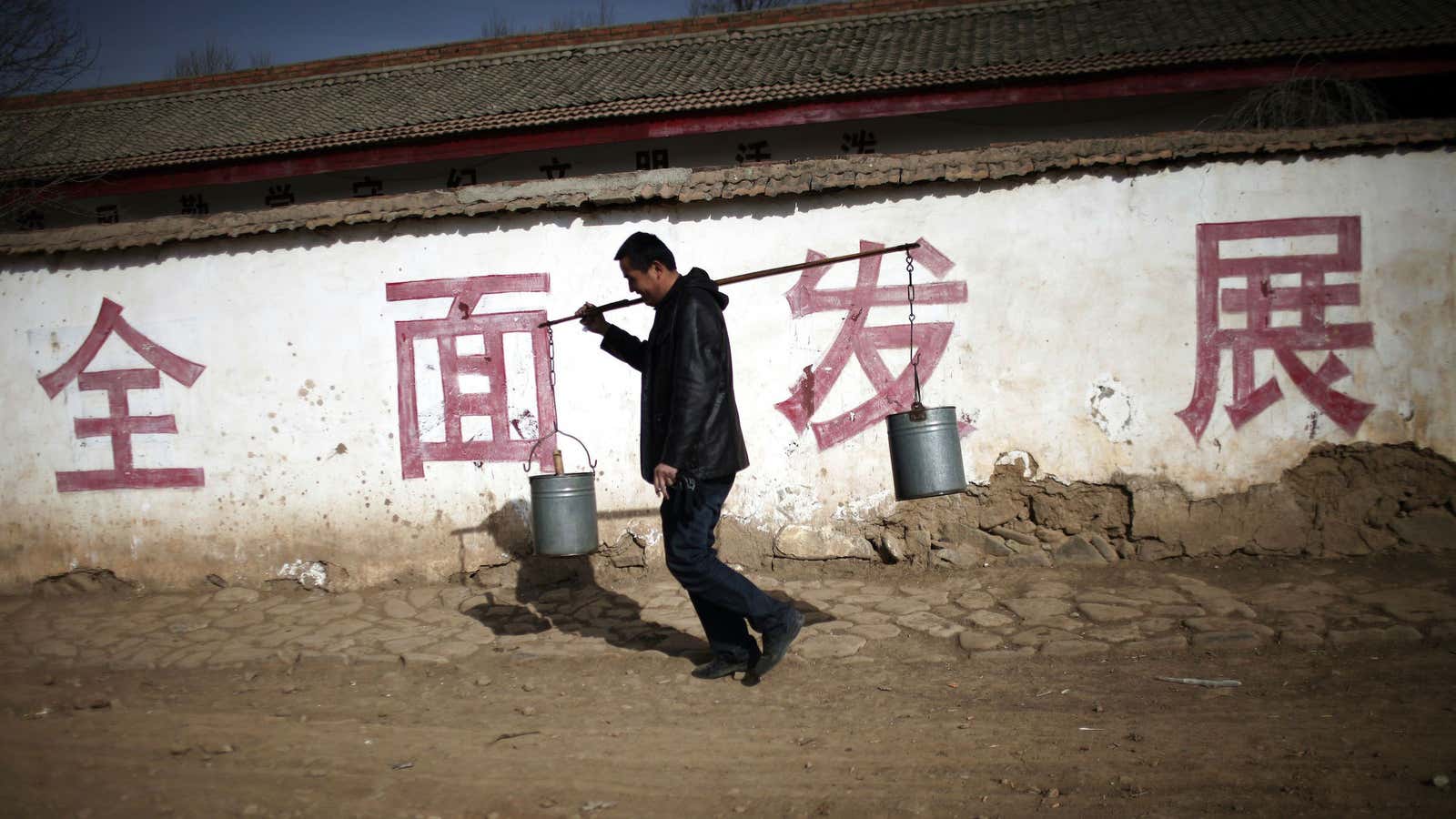For some Chinese villages, being poor comes with certain advantages. When the government updated a list over 500 counties and villages designated as officially “impoverished” in 2012, the newly included county of Xinshao in Hunan province erected a flashy LED screen to boast of its status. ”We warmly celebrate Xinshao County’s successful inclusion on the list of national-level poverty-stricken areas,” the billboard read.
That’s because Xinshao now receives an extra 560 million yuan ($90 million) a year from Beijing, as the Economist points out in a recent story. The Chinese government funnels billions of yuan a year to 592 counties and 128,000 villages that compete to be officially recognized as poor. This money is meant to go toward subsidies for farmers, local credit unions where residents can apply for loans, and training and development projects chosen by residents. The government spent $43 billion yuan last year on poverty alleviation programs like this one, 10% more than it did the year before.
Last month, the head of the State Council body that oversees the program, Liu Yongfu said that he believes these hundreds of counties will no longer be poor by 2020. (China defines the poor as those with annual per capita income of 2,300 yuan or less.) About 90 million Chinese, mostly rural residents, are considered poor by the government’s measure.
According to Liu, identifying the poor is a significant first step in the government’s battle against poverty. In reality, success is a bit more uneven. A 2010 study by Oxford University and Renmin Univeristy in Beijing found that the program didn’t raise income or increase consumption of poorer households—but it did boost income and consumption of richer households by as much as 9%. Residents of one officially impoverished town in the northeastern Tianzhen county told the Economist that there’s little transparency as to how subsidies for the county are spent.
Money is often siphoned off for other uses. In 2013, a government audit found that at least 234 million yuan from 3.9 billion yuan given to 19 counties on the list had been “misused.” It wound up being used for banquets and gifts instead.
Additional reporting by Zheping Huang.




